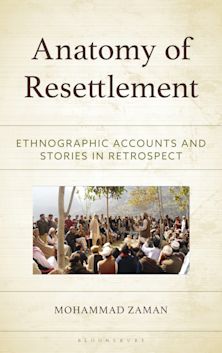- Home
- ACADEMIC
- Anthropology
- Anthropology - Other
- The Art of Fieldwork
This product is usually dispatched within 3 days
- Delivery and returns info
-
Free CA delivery on orders $40 or over
Exam copy added to basket
Choose your preferred format. Please note ebook exam copies are fulfilled by VitalSource™.
You must sign in to add this item to your wishlist. Please sign in or create an account
Description
In this long-anticipated second edition of The Art of Fieldwork, prominent anthropologist Harry F. Wolcott updates his original groundbreaking text, which both challenges and petitions anthropology and its practitioners to draw not only on the traditional precepts of science, but also on the richness of artistry in the collection, interpretation, and expression of fieldwork data. Each of the original chapters have been thoughtfully revised to reflect the past nine years of anthropological development. Combined with a new final chapter, this refreshing text makes an exciting reentry into the ongoing debate of the processes, challenges, and rewards of fieldwork methodology. Researchers in qualitative methods and field methods_and fieldworkers across disciplines_will find this well-crafted, approachable book a thought-provoking read.
Table of Contents
Chapter 2 Chapter 1. Introduction
Chapter 3 Chapter 2. Fieldwork As Art?
Chapter 4 Chapter 3. How Art Works
Part 5 Part Two: The Fieldwork Part Of Fieldwork
Chapter 6 Chapter 4. Fieldwork Vs. (Just) Being In The Field
Chapter 7 Chapter 5. Fieldwork: The Basic Arts
Chapter 8 Chapter 6. Fieldwork: The Darker Arts
Part 9 Part Three: Fieldwork As Mindwork
Chapter 10 Chapter 7. The Art Of (Conceptual) Self-Defense
Chapter 11 Chapter 8. The Art Of Conceptualizing
Chapter 12 Chapter 9. The Art Of Self-Expression
Part 13 Part Four: Fieldwork As Personal Work
Chapter 14 Chapter 10. Satisfactions Of Fieldwork
Chapter 15 Chapter 11. The Art Of Discretion
Part 16 References And Select Bibliography
Part 17 Name Index
Part 18 Subject Index
Part 19 About The Author / About The Book
Product details
| Published | Nov 20 2004 |
|---|---|
| Format | Paperback |
| Edition | 2nd |
| Extent | 288 |
| ISBN | 9780759107977 |
| Imprint | AltaMira Press |
| Dimensions | 230 x 154 mm |
| Publisher | Bloomsbury Publishing |
About the contributors
Reviews
-
Praise for the first edition: Far more than a how-to-do-it handbook, The Art of Fieldwork offers a rich, engaging discourse drawing from a lifetime of personal experiences.....
Donald A. Ritchie, associate historian, U.S. Senate Historical Office; author of Doing Oral History, Routledge Studies In Memory and Narrative
-
Wolcott updates his original groundbreaking text, in this long-anticipated second edition of The Art of Fieldwork, which appeals to anthropology and its practitioners to draw on the traditional precepts of science as well as on the richness of artistry. The Art of Fieldwork makes an exciting reentry into the ongoing debate of the processes, challenges, and rewards of fieldwork. Qualitative researchers across the disciplines will find this well-crafted, approachable book a thought-provoking read and a perfect introduction to the nuances of field methods for their students.
Sir Read Alot Book Review
-
Harry F. Wolcott's The Art of Fieldwork presents thorough and captivating discussion of the issues surrounding ethnographic fieldwork, with particular focus on the many contradictory facets of the science. It is an excellent resource for both experienced and new fieldwork researchers.
Qualitative Social Research
-
The author has many helpful suggestions for the first-time fieldworker.
Journal Of The Royal Anthropological Institute
-
Praise for the first edition: This is a fine introduction to the perils and pleasures of fieldwork. Broad, eclectic, and open, it deals with questions of both epistemology and technique straightforwardly and without pretension.....
Leslie Salzinger, American Journal of Sociology
-
Praise for the first edition:
This is a fine introduction to the perils and pleasures of fieldwork. Broad, eclectic, and open, it deals with questions of both epistemology and technique straightforwardly and without pretension.Leslie Salzinger, American Journal of Sociology


































